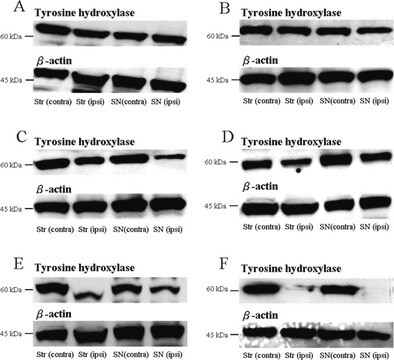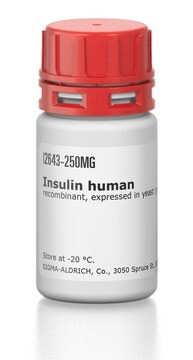MS0100
ProteoMass™ Guanidination Kit
For improving MALDI-MS sensitivity and peptide sequence coverage
About This Item
Produits recommandés
Gamme de produits
ProteoMass™
Application(s)
cleaning products
cosmetics
flavors and fragrances
food and beverages
personal care
Compatibilité
for use with (Complex cell extracts, pure protein solution, 1D and 2D PAGE gels)
Application
Caractéristiques et avantages
- Identify more samples with greater accuracy and confidence
- Increase throughput and save time - only 35 minutes to use the kit vs. 2 hours using traditional methods
- Compatibility - compatible with 1D or 2D PAGE gel bands or spots, as well as complex cell extracts
Autres remarques
Informations légales
Produit(s) apparenté(s)
Mention d'avertissement
Danger
Mentions de danger
Conseils de prudence
Classification des risques
Aquatic Acute 1 - Aquatic Chronic 3 - Eye Dam. 1 - Skin Corr. 1A - STOT SE 3
Organes cibles
Respiratory system
Code de la classe de stockage
8A - Combustible corrosive hazardous materials
Classe de danger pour l'eau (WGK)
WGK 3
Point d'éclair (°F)
Not applicable
Point d'éclair (°C)
Not applicable
Certificats d'analyse (COA)
Recherchez un Certificats d'analyse (COA) en saisissant le numéro de lot du produit. Les numéros de lot figurent sur l'étiquette du produit après les mots "Lot" ou "Batch".
Déjà en possession de ce produit ?
Retrouvez la documentation relative aux produits que vous avez récemment achetés dans la Bibliothèque de documents.
Notre équipe de scientifiques dispose d'une expérience dans tous les secteurs de la recherche, notamment en sciences de la vie, science des matériaux, synthèse chimique, chromatographie, analyse et dans de nombreux autres domaines..
Contacter notre Service technique









